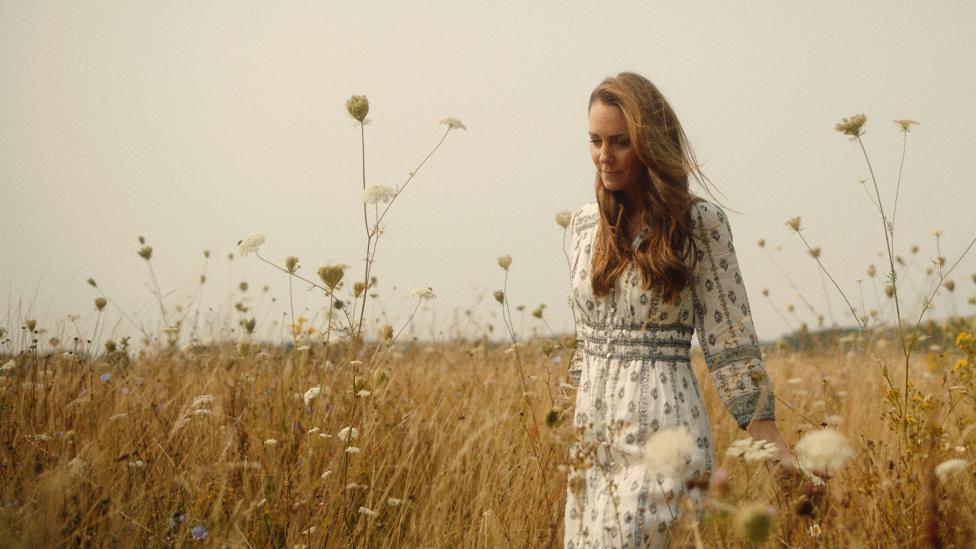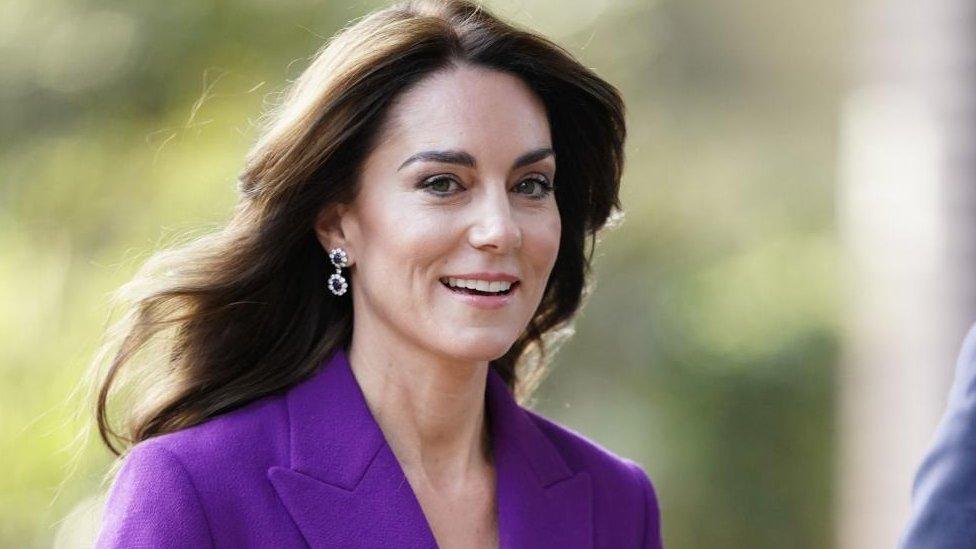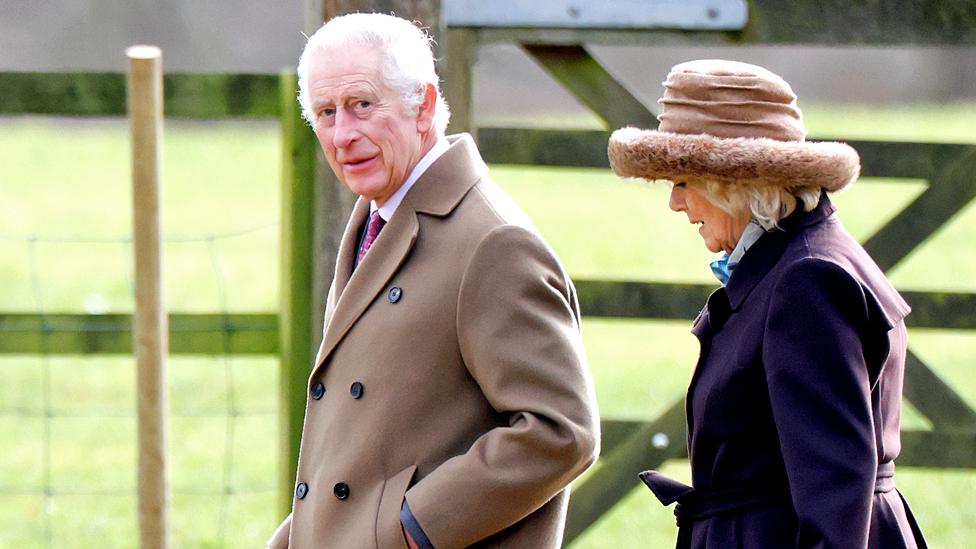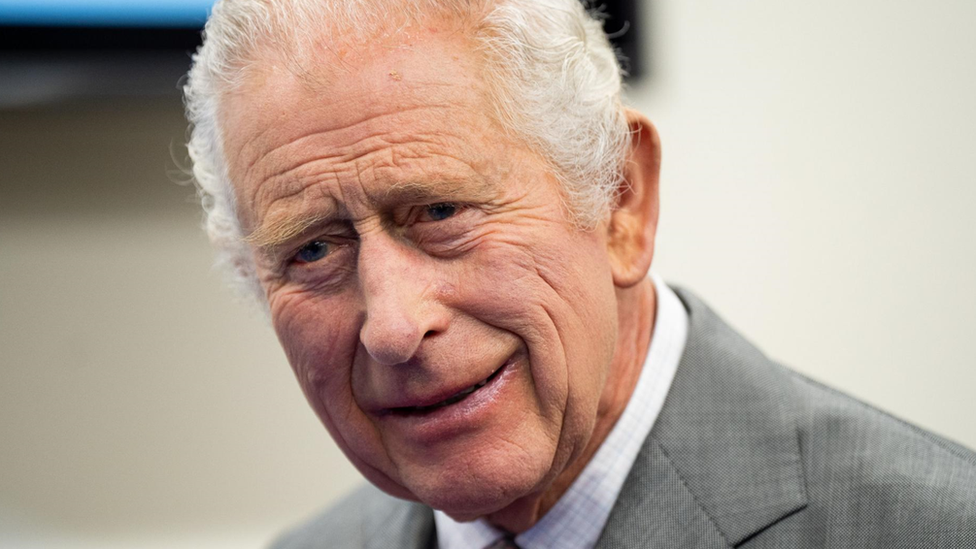What do we know about Kate's cancer journey?
- Published

Catherine, Princess of Wales, has now completed a course of chemotherapy treatment and is focused on being cancer free and returning to work when she can.
In a video message released earlier on Monday afternoon, she says the past nine months have been "incredibly tough for us as a family".
"The cancer journey is complex, scary and unpredictable for everyone, especially those closest to you," she says.
Although the princess's chemotherapy has now ended, she said "the path to healing and full recovery is long" and she would "take each day as it comes".
When did the princess's treatment end?
Catherine began preventative chemotherapy treatment in late February, after tests found cancer in tissues removed during an operation in January.
Chemotherapy is a course of anti-cancer drugs designed to get rid of any remaining cancer cells that may be present.
It reduces the chance of a cancer growing or coming back.
It has not been revealed when the princess's treatment ended.
"Doing what I can to stay cancer free is now my focus," Catherine says in the video.
What type of cancer did the princess have?
Kensington Palace has not said what type of cancer Catherine was being treated for.
It has also indicated it is not possible at this stage to say whether she is officially cancer free.
In the vast majority of cases, a patient is not cancer free until they have had successful surgery, completed subsequent treatment and a period of monitoring.
What is the princess's message for other people with cancer?
"To all those who are continuing their own cancer journey - I remain with you, side by side, hand in hand," Catherine says.
And she is "so grateful" for the support she and the Prince of Wales have received, from which they had drawn "great strength".
Where did she receive treatment?
Catherine's original operation took place at the London Clinic, a private facility.
Kensington Palace said it would not be sharing any further private medical information.
In an earlier video message Catherine thanked the "fantastic medical team" who had been treating her.
What is cancer?
Cancer occurs when cells in a specific part of the body divide in an uncontrolled way.
Untreated, these cells can potentially spread to other tissues in the body, including organs, which is known as secondary or metastatic cancer.
How many people get cancer?
In the UK, one in two people develop some kind of cancer during their lifetime.
There are more than 200 different types of cancer - the most common ones in the UK are breast, lung, prostate and bowel, according to the NHS UK website, external.
Each cancer is diagnosed and treated in a particular way.
Anyone can develop cancer, but the risk goes up the older we become, because there is more time for cell damage to build up.
Most cases of cancer are in people aged 50 and over. In the UK, a third of all cases are in people aged 75 and over, external.
Survival from cancer has doubled in the last 50 years.
How to tell your child you have cancer
What should you do if you think you have cancer?
If you notice something that isn't normal for you, see a doctor.
That might include:
unexplained bleeding or pain
an unusual lump or swelling
unexplained tiredness and weight loss
a persistent cough
The symptoms you are experiencing may not be cancer, but it is important to get checked.
Finding cancer early can often make it easier to treat.
- Published15 February 2017
- Published17 January 2024

- Published6 February 2024

- Published29 January 2024
